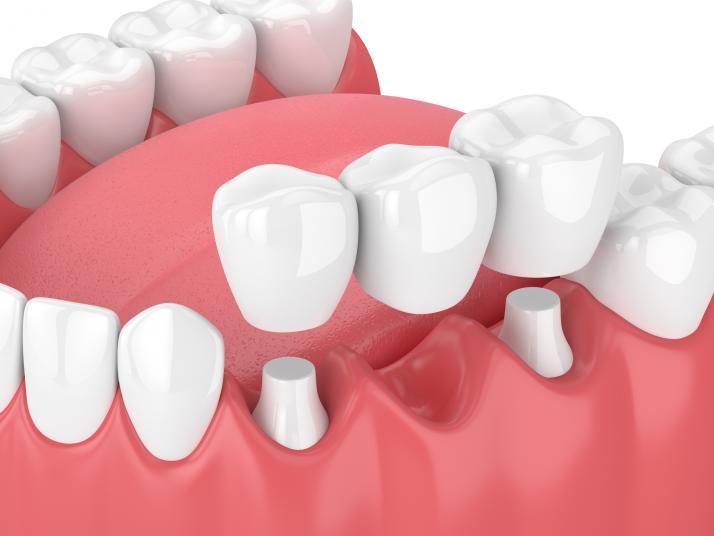Dental crowns and bridges are common restorative treatments to repair damaged teeth and replace missing ones. They offer a range of benefits, from restoring oral functionality to enhancing the aesthetics of your smile. This comprehensive guide will delve into the benefits of dental crowns and bridges, exploring how they can improve your dental health and overall well-being.
Restoring Damaged Teeth With Dental Crowns:
Dental crowns are custom-made caps that cover a damaged tooth, restoring its shape, strength, and appearance. Here are some key benefits of dental crowns:
Protection:
Crowns protect weakened teeth, preventing further damage and fracture. They act as a shield, safeguarding the underlying tooth structure.
Durability:
Made from strong and durable materials such as porcelain, ceramic, or metal alloys, dental crowns can withstand the forces of biting and chewing. They are designed to last for many years with proper care.
Natural Appearance:
Crowns can match the color and shape of your natural teeth, ensuring a seamless and natural-looking restoration. This enhances the aesthetics of your smile and boosts self-confidence.
Improved Functionality:
By restoring the shape and function of damaged teeth, dental crowns enable you to bite, chew, and speak comfortably. They restore oral functionality and allow for proper alignment of the bite.
Replacing Missing Teeth With Dental Bridges:
Dental bridges are used to replace one or more missing teeth. They consist of artificial teeth (pontics) supported by dental crowns on adjacent natural teeth or dental implants. Here are the benefits of dental bridges:
Restored Chewing and Speaking Abilities:
Dental bridges fill the gaps left by missing teeth, allowing for proper chewing and speaking. They help distribute the biting forces evenly, preventing strain on surrounding teeth.
Maintained Facial Structure:
Missing teeth can lead to facial sagging and a sunken appearance. Dental bridges fill the gaps, supporting the facial structure and maintaining a youthful appearance.
Preventing Teeth Shifting:
When missing, neighboring teeth can shift into the space, causing misalignment and bite problems. Dental bridges help keep adjacent teeth in their proper positions, preserving dental harmony.
Enhanced Confidence And Self-Esteem:
Dental bridges provide a natural-looking replacement for missing teeth, improving the aesthetics of your smile. This can boost your self-confidence and enhance your overall quality of life.
Longevity And Maintenance:
Both dental crowns and bridges are designed to be long-lasting with proper care and maintenance. Here are some essential tips:
Oral Hygiene:
Maintain excellent oral hygiene by brushing twice daily, flossing regularly, and using antimicrobial mouthwash. This helps prevent decay and gum disease around the crowned or bridged teeth.
Regular Dental Check-ups:
Visit your dentist for routine check-ups and professional cleanings. Dentists can assess the condition of your crowns and bridges, identify any issues early, and provide appropriate care.
Avoid Harmful Habits:
Refrain from habits such as biting hard objects, opening packages with your teeth, or grinding your teeth. These can damage dental restorations and compromise their longevity.
Follow the Dentist’s Recommendations:
Listen to your dentist’s guidance on caring for your crowns and bridges. They may recommend specific dental products or techniques to ensure optimal maintenance.
The Bottom Line
Dental crowns and bridges offer many benefits, from restoring damaged teeth to replacing missing ones. They can significantly enhance your dental health and overall well-being by providing protection, durability, natural appearance, and improved functionality. With proper care and maintenance, dental crowns and bridges can serve as long-lasting solutions, allowing you to enjoy a healthy, beautiful smile for years. Consult with your dentist to determine if dental crowns or bridges are the right treatment options for your specific needs, and reap their numerous benefits.


